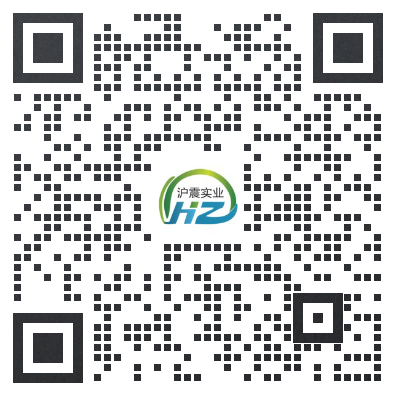
磷酸化细胞转录因子ELK1抗体
产品名称: 磷酸化细胞转录因子ELK1抗体
英文名称: Phospho-ELk1(Thr417)
产品编号: hz-5336R
产品价格: null
产品产地: 中国/上海
品牌商标: HZbscience
更新时间: 2023-08-17T10:24:20
使用范围: B=1:500-2000 ELISA=1:500-1000 IHC-P=1:400-800 IHC-F=1:400-800 IF=1:100-500
上海沪震实业有限公司
- 联系人 : 鲍丽雯
- 地址 : 上海市闵行区闵北路88弄1-30号第22幢AQ136室
- 邮编 : 200612
- 所在区域 : 上海
- 电话 : 139****0749 点击查看
- 传真 : 点击查看
- 邮箱 : www.shzbio.net
- 二维码 : 点击查看
Rabbit Anti-Phospho-ELk1(Thr417) antibody
| 产品编号 | hz-5336R |
| 英文名称 | Phospho-ELk1(Thr417) |
| 中文名称 | 磷酸化细胞转录因子ELK1抗体 |
| 别 名 | ELK1 (phospho T417); Elk-1(Phospho-Thr417); p-ELK1 (T417); p-Elk-1(Thr417); ELK 1; ELK1 member of ETS oncogene family; ELK1 protein; ELK2 member of ETS oncogene family; ETS domain containing protein Elk 1; ETS domain containing protein Elk1; ETS domain protein Elk1; Oncogene Elk1; ETS domain-containing protein Elk-1 isoform a; ETS domain-containing protein Elk-1; ETS-like gene 1; tyrosine kinase (ELK1) oncogene; ELK1_HUMAN. |
| 产品类型 | 磷酸化抗体 |
| 研究领域 | 肿瘤 生长因子和 转录调节因子 |
| 抗体来源 | Rabbit |
| 克隆类型 | Polyclonal |
| 交叉反应 | Human, Mouse, Rat, Dog, Pig, Cow, Rabbit, Guinea Pig, |
| 产品应用 | WB=1:500-2000 ELISA=1:500-1000 IHC-P=1:400-800 IHC-F=1:400-800 IF=1:100-500 (石蜡切片需做抗原修复) not yet tested in other applications. optimal dilutions/concentrations should be determined by the end user. |
| 分 子 量 | 47kDa |
| 细胞定位 | 细胞核 |
| 性 状 | Lyophilized or Liquid |
| 浓 度 | 1mg/ml |
| 免 疫 原 | KLH conjugated Synthesised phosphopeptide derived from human ELk1 around the phosphorylation site of Thr417 [LS(p-T)PV]:LS(p-T)PV |
| 亚 型 | IgG |
| 纯化方法 | affinity purified by Protein A |
| 储 存 液 | 0.01M TBS(pH7.4) with 1% BSA, 0.03% Proclin300 and 50% Glycerol. |
| 保存条件 | Store at -20 °C for one year. Avoid repeated freeze/thaw cycles. The lyophilized antibody is stable at room temperature for at least one month and for greater than a year when kept at -20°C. When reconstituted in sterile pH 7.4 0.01M PBS or diluent of antibody the antibody is stable for at least two weeks at 2-4 °C. |
| PubMed | PubMed |
| 产品介绍 | background: This gene is a member of the Ets family of transcription factors and of the ternary complex factor (TCF) subfamily. Proteins of the TCF subfamily form a ternary complex by binding to the the serum response factor and the serum response element in the promoter of the c-fos proto-oncogene. The protein encoded by this gene is a nuclear target for the ras-raf-MAPK signaling cascade. This gene produces multiple isoforms by using alternative translational start codons and by alternative splicing. Related pseudogenes have been identified on chromosomes 7 and 14. [provided by RefSeq, Mar 2012]. Function: Stimulates transcription. Binds to purine-rich DNA sequences. Can form a ternary complex with the serum response factor and the ETS and SRF motifs of the fos serum response element. Subunit: Interacts in its sumoylated form with PIAS2/PIASX which enhances its transcriptional activator activity. Interacts with MAD2L2; the interaction is direct and promotes phosphorylation by the kinases MAPK8 and/or MAPK9. Subcellular Location: Nucleus. Tissue Specificity: Lung and testis. Post-translational modifications: Sumoylation represses transcriptional activator activity as it results in recruitment of HDAC2 to target gene promoters which leads to decreased histone acetylation and reduced transactivator activity. It also regulates nuclear retention. On mitogenic stimulation, phosphorylated on C-terminal serine and threonine residues by MAPK1. Ser-383 and Ser-389 are the preferred sites for MAPK1. In vitro, phosphorylation by MAPK1 potentiates ternary complex formation with the serum responses factors, SRE and SRF. Also phosphorylated on Ser-383 by MAPK8 and/or MAKP9. Phosphorylation leads to loss of sumoylation and restores transcriptional activator activity. Phosphorylated and activated by CAMK4, MAPK11, MAPK12 and MAPK14. Similarity: Belongs to the ETS family. Contains 1 ETS DNA-binding domain. SWISS: P19419 Gene ID: 1978 Database links: Entrez Gene: 1978 Human Entrez Gene: 13685 Mouse Entrez Gene: 116636 Rat Omim: 602223 Human SwissProt: Q13541 Human SwissProt: Q60876 Mouse SwissProt: Q62622 Rat Unigene: 411641 Human Unigene: 6700 Mouse Unigene: 11161 Rat Important Note: This product as supplied is intended for research use only, not for use in human, therapeutic or diagnostic applications |
